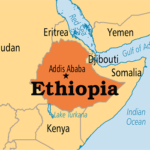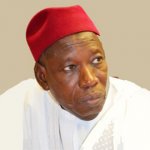Today, Nigerians woke to the news that President Buhari had submitted his ministerial nominees list to the National Assembly. The list has been reported to be made up of 43 names consisting of 36 men and only 7 women.
The representation of women in said list is about 16% which is very low and not a fair representation of women in this government. For a government that has always promised inclusive governance one would have expected at least a 30% women representation in the proposed cabinet.
In a world where technology is making rapid strides and barriers of gender are becoming dismantled; governance is enriched when women are given good representation. According to the 2016 World Bank report the population of women in Nigeria is said to be 49.33%, which is almost half of its population. Nations are poorer if they fail to tap the full potentials of half of its population.
A good and fair representation and participation of women in governance is part of achieving genuine democracy, there can be no real democracy when half of the population doesn’t have a good or fair participation in governance. It has been said that where there is a good representation of women decision makers issues previously unaddressed can be priorities, women involvement in governance ensures that a wider range of perspective is brought to bear in policy making and service delivery.
A country serious about equitable and sustainable development will ensure a good participation of women in governance and policy implementation. As we aim for a stable democracy, higher levels of women representation in government should be aimed for. It has also been proven that an increase of women in public life results in lower levels of inequalities and increased confidence in national governments, figures shows that increase presence of women cabinet ministers is associated with a rise in public health spending across many countries.
It is pertinent that government should reflect the diversity of societies they represent to guarantee a balanced perspective which enables an inclusive approach to policy making and service delivery. If we are to build sustainable routes out of poverty women must be full beneficiaries and contributors to the country’s progress.
Olayemi Olaniyi (Mrs), Convener, A Nigeria That Works Movement, writes in via anigeriathatworks@gmail.com
WATCH TOP VIDEOS FROM NIGERIAN TRIBUNE TV
- Let’s Talk About SELF-AWARENESS
- Is Your Confidence Mistaken for Pride? Let’s talk about it
- Is Etiquette About Perfection…Or Just Not Being Rude?
- Top Psychologist Reveal 3 Signs You’re Struggling With Imposter Syndrome
- Do You Pick Up Work-Related Calls at Midnight or Never? Let’s Talk About Boundaries






